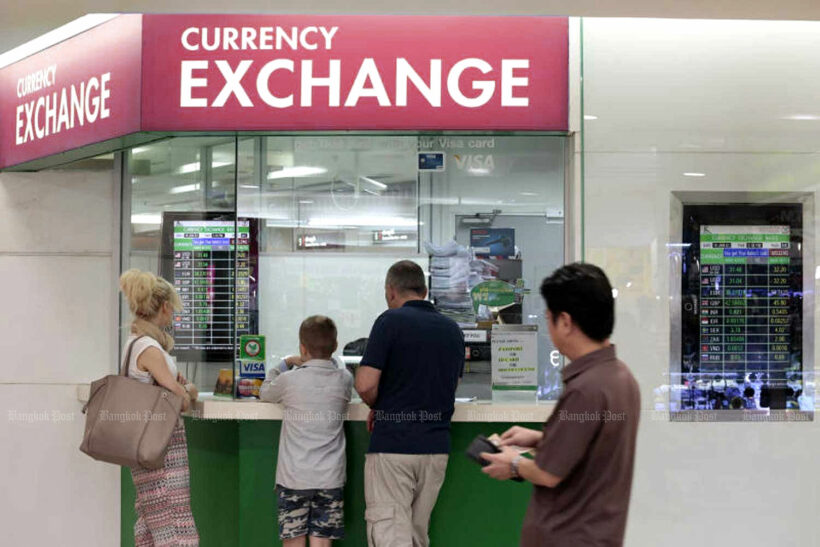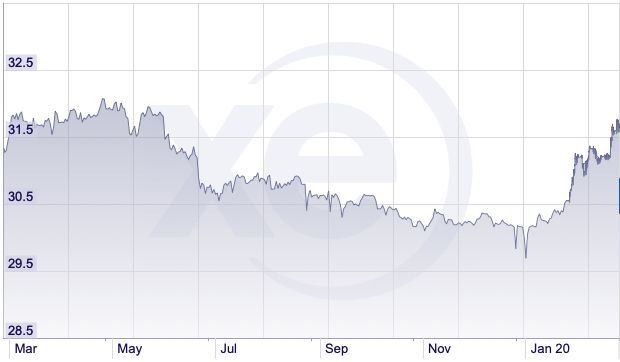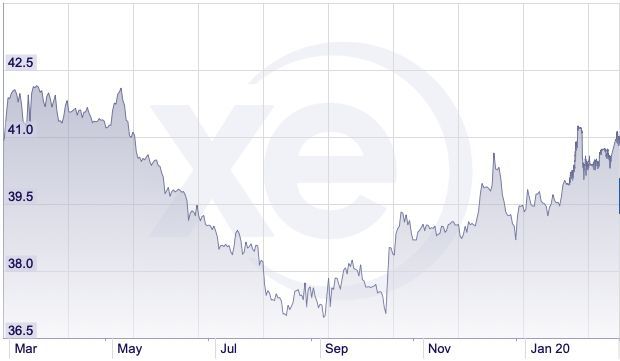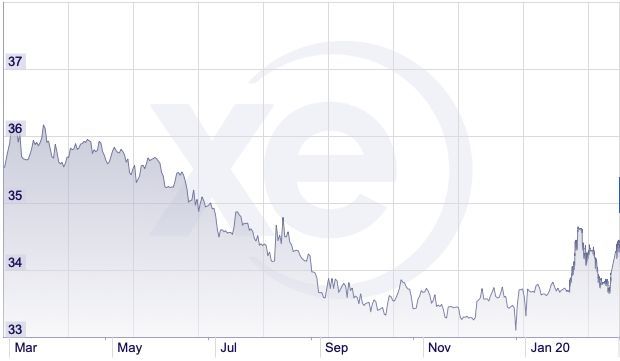Thai Baht on the slide over fears of spread of Coronavirus outside China

What goes up must go down. The Thai baht has continued to weaken against leading international currencies, trading at 31.70 to the US$ in yesterday’s trade. The falls reflect regional concern over the coronavirus spreading beyond China. In the past few days both central South Korea and parts of northern Italy have reported outbreaks of the virus.
Kasikorn Research Centre report the baht had weakened along with the Chinese yuan and other regional currencies amid concerns about the Covid-19 outbreak.
The SET also plunged along with other Asian stocks due to concerns over the spread of the virus. In addition, the baht fell on technical selling orders after it broke the 31.50 baht/USdollar level.
Signs of a weak economic outlook, as well as net foreign selling orders for Thai stocks and bonds pressured the baht sentiment, according to the Kasikorn report. The US dollar also rose on positive data on the US economy.
Last Friday, the baht had closed at 31.62/USdollar, having hit an eight month low of 31.69 baht/USD.
Up to the end of this week, KBank expects the baht to move within a range of 31.40-32 baht/USdollar. Key factors to be monitored closely are Thai export data for January, the Bank of Thailand’s monthly economic report and the ongoing coronavirus situation, according to the Kasikorn Research Centre report.
Meanwhile, the US economic data to be released during the week include February consumer sentiment surveys, plus February durable goods orders, new home sales, pending home sales, personal spending-income, and PCE/Core PCE price indices, fourth quarter 2019 GDP report (second release) and December house price data, according to the report in The Nation.

USD v THB

POUND v THB

EURO v THB
Latest Thailand News
Follow The Thaiger on Google News:


























